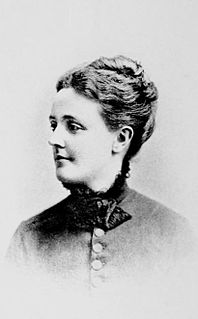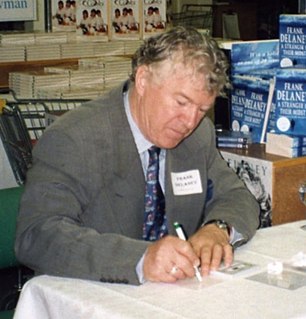A Quote by Joyce Carol Oates
Each time I undertake to reread Virginia Woolf, I am somewhat baffled by the signature breathlessness and relentlessly "poetic" tone, the shimmering impressionism, so very different from the vivid, precise, magisterial (and often very funny) prose of her contemporary James Joyce.
Related Quotes
When I saw what painting had done in the last thirty years, what literature had done - people like Joyce and Virginia Woolf, Faulkner and Hemingway - in France we have Nathalie Sarraute - and paintings became so strongly contemporary while cinema was just following the path of theater. I have to do something which relates with my time, and in my time, we make things differently.
Virginia Woolf thought a lot about her own sex when she wrote. In the best sense of the word, her writing is very feminine, and by that I mean that women are supposed to be very sensitive to all the sensations of nature, much more so than men, much more contemplative. It's this quality that marks her best works.
The notion of the writer as a kind of sociological sample of a community is ludicrous. Even worse is the notion that writers should provide an example of how to live. Virginia Woolf ended her life by putting a rock in her sweater one day and walking into a lake. She is not a model of how I want to live my life. On the other hand, the bravery of her syntax, of her sentences, written during her deepest depression, is a kind of example for me. But I do not want to become Virginia Woolf. That is not why I read her.
Mann and Joyce are very different, and yet their fiction often appeals to the same people: Harry Levin taught a famous course on Joyce, Proust, and Mann, and Joseph Campbell singled out Joyce and Mann as special favorites. To see them as offering "possibilities for living", as I do, isn't to identify any distinctive commonality. After all, many great authors would fall under that rubric.
Think of Virginia Woolf, 'A Room of One's Own' - that's what women have always needed under patriarchy and can't be creative without. They took away my classroom and my status to teach, and now they have taken away my office, and all of it is giving the message that Virginia Woolf and I are losing what I call 'womenspace.'
For pain words are lacking. There should be cries, cracks, fissures, whiteness passing over chintz covers, interference with the sense of time, of space ; the sense also of extreme fixity in passing objects ; and sounds very remote and then very close ; flesh being gashed and blood sparting, a joint suddenly twisted - beneath all of which appears something very important, yet remote, to be just held in solitude.” — Virginia Woolf, The Waves




































